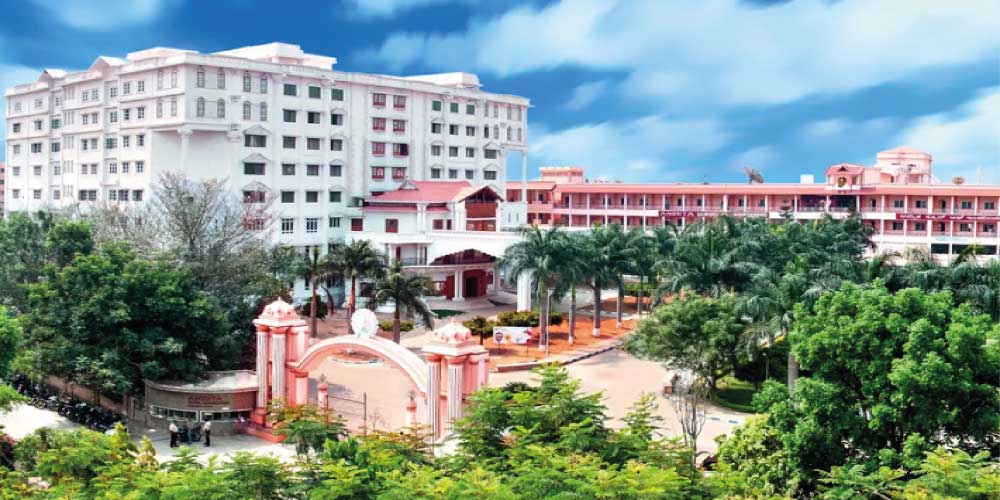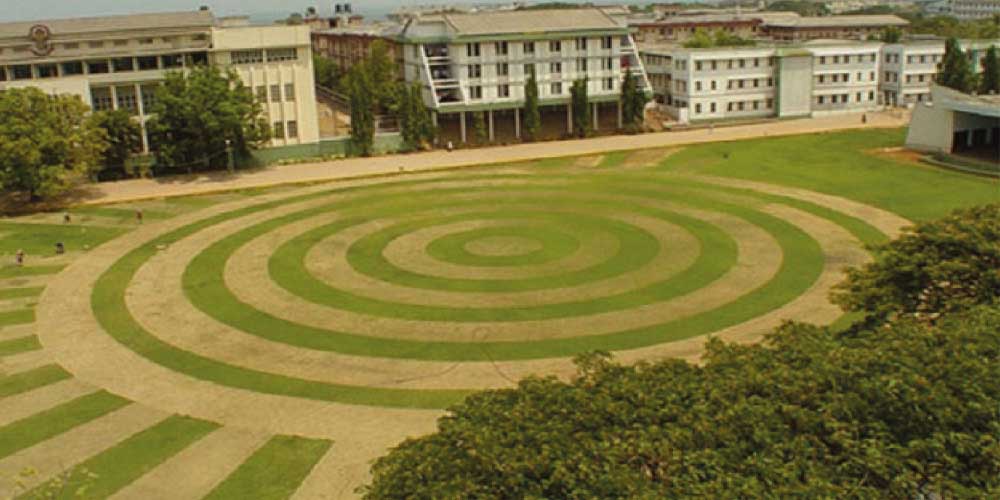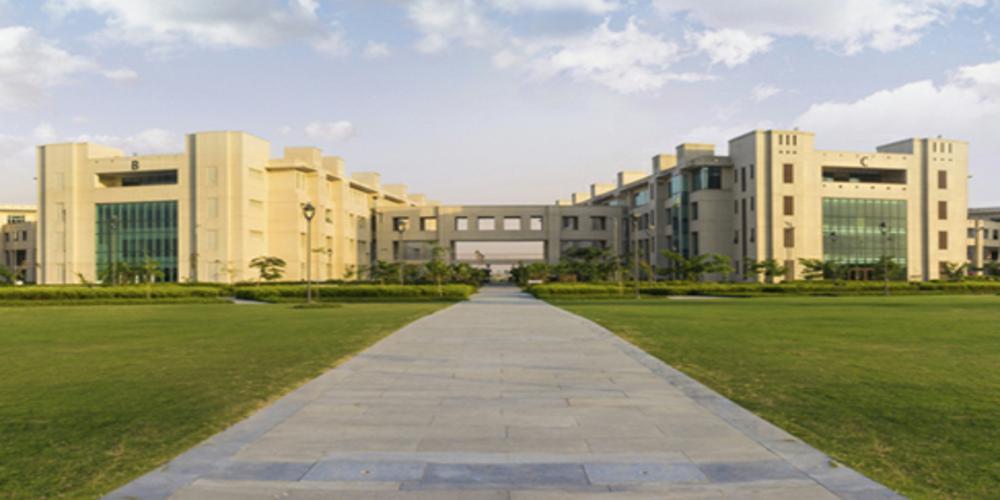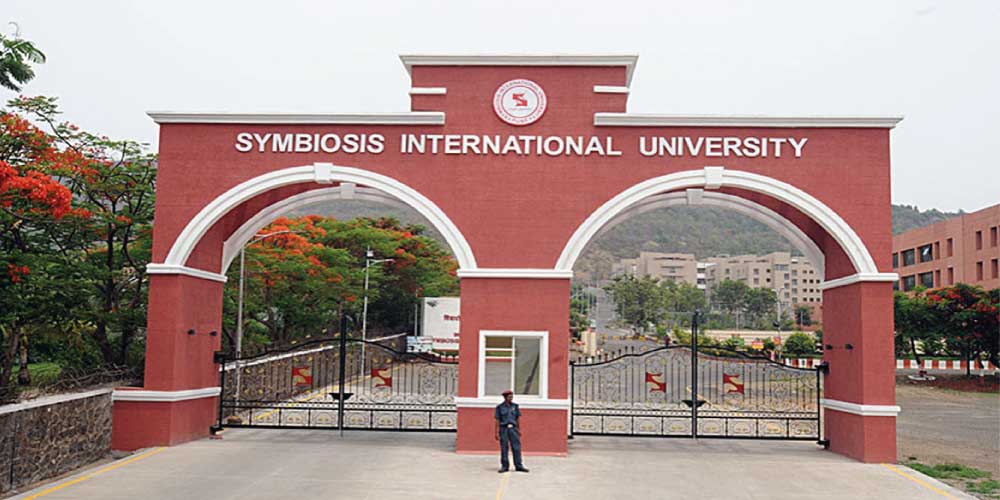
Symbiosis University
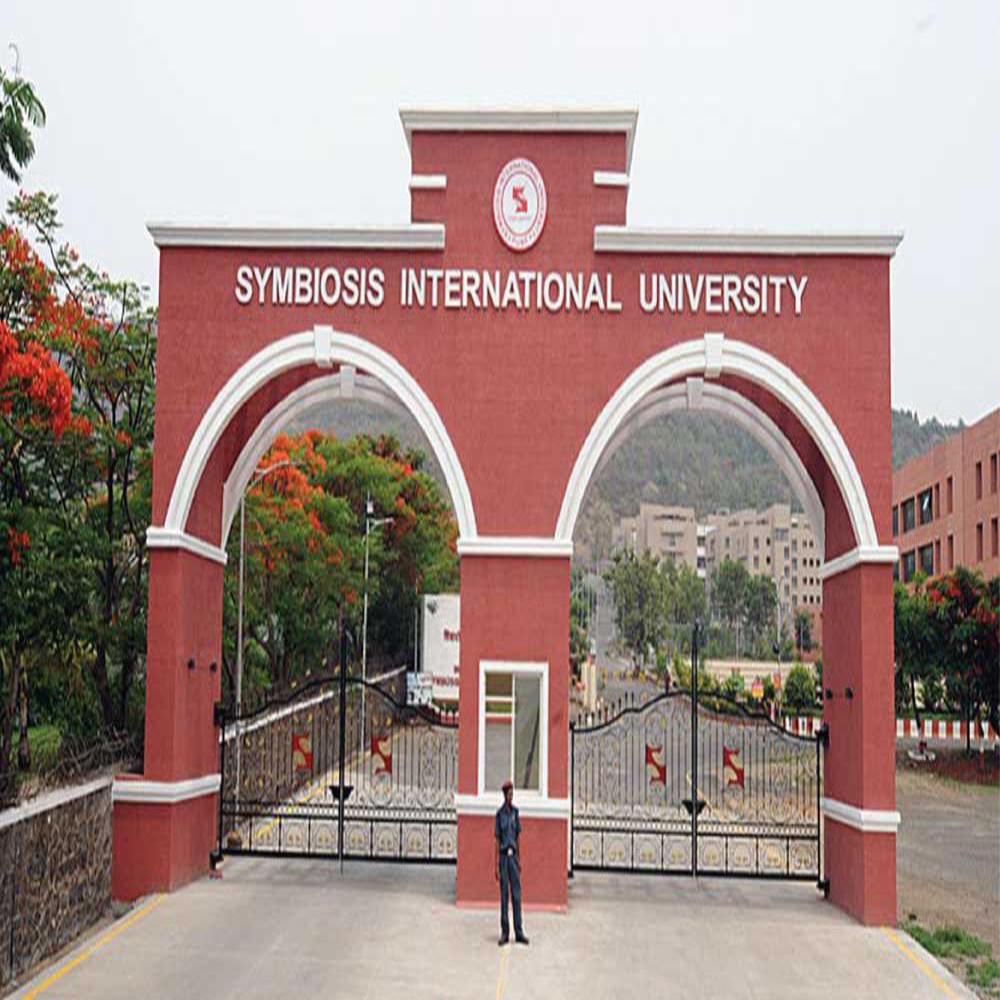
1.About University
Symbiosis International University is a multi-campus deemed university in Private Higher Education, headquartered in Pune, Maharashtra, India. The institute was established by DR.S.B. Mujumdar in 1971with inspiration from Rabindranath Tagore’s “Viswabharati” and Sane Guruji’s “Anthar Bharati” to encourage & help foreign students. The main motto of the organisation was to establish “a home away from home” to foreign students which is the vision & mission of the Institute – “Vasudhika Kutumbakkam – World is one family”. The institute derived its name from the scientific concept of Symbiosis meaning “Two different organisms living together for mutual benefit”
Symbiosis is a family of academic institutions which include University, Colleges, Centres and Schools which have been imparting quality education for over 47 years. It hosts to over 34,000 Indian and International students on campus. These campuses epitomize the Symbiosis vision, ‘Promoting International Understanding through Quality Education’ and act as a beehive of international students from all across the globe, being privy to Indian culture and hospitality. Many of these campuses are fully residential and have recreational facilities which include swimming pools, amphitheatres & Health Care centres.
Symbiosis was established in 1971 under section 3 of UGC ACT of 1956 in 300 Acre beautiful campus – “Knowledge Village” in Pune, Maharashtra, India. In 2002, Under Symbiosis society, Symbiosis Institute of Computer Science & Research, Symbiosis Institute of Business Management and Symbiosis Society’s Law College which formed Symbiosis International University attained the Deemed University status by Ministry of Human Resources Development. The university has 38 academic institutions spread over ten campuses in Bangalore, Hyderabad, Nashik, Noida and Pune. In 2019, the university opened a new campus in Nagpur.
2.Regulating Body of the University
- Chancellor: Dr S B Mujumdar (M.Sc. PhD)
- Vice-Chancellor: Dr Rajani R.Gupte (M.A, M.Phil, PhD) (Economics)
- Pro-Chancellor: Dr Vidya Yeravdekar, (Principal Director of Symbiosis International Deemed University)
3.Accreditations
SIU is highly accredited by national and international accrediting agencies.
NAAC (National Accreditation & Assessment Council) – A grade for 3 times
APQL (Asian Pacific Quality label) – 5 times
IAOPI ( International Association Of Innovative Professionals in India
4.Campuses
Campuses:
Symbiosis International University has 6 campuses.
They are:
- Pune- 1971
- Bangaluru- 2008
- Noida- 2010
- Nashik – 2005
- Hyderabad- 2002
- Nagpur – 2019
5.University Rankings
| Category | Ranking Authority | Rank |
| International (General) | QS WUR | 401-450 |
| Asian | Asian University | 291-300 |
| International (General) | QS I-Gauge | Gold Award |
| National (General) | NIRF (overall) 2019 | 46 |
| National (Subject) | NIRF (Management ) 2019 | 20 |
| National ( subject) | NIRF (Law) 2019 | 7 |
| International | FICCI | Higher Education award |
| National | The Week | 1 |
| National | India Today | 10 |
| National (Swacch Campus) | MHRD | 1 |
| National UGC Graded Autonomy | MHRD | Category -1 |
| University | BRICS | 109 |
| Indian Universities | QS | 23 |
| Private Indian Universities | QS | 2 |
| National | Out Look India | 42 |
6.Academics
SIU offers admissions to Under Graduate courses through SET (Symbiosis Entrance Test) & to Post Graduate courses through SNAP Test (Symbiosis National Aptitude Test) which are conducted every year in the months of May & June.
7.Institutes / Schools in Symbiosis International
- Symbiosis Law School (SLS), Pune
- Symbiosis Institute of Business Management (SIBM ), Pune
- Symbiosis Institute of Computer Studies and Research (SICSR)
- Symbiosis Centre for Management and Human Resource Development (SCMHRD)
- Symbiosis Institute of International Business (SIIB)
- Symbiosis Institute of Digital and Telecom Management (SIDTM)
- Symbiosis Institute of Management Studies (SIMS)
- Symbiosis Institute of Media & Communication (SIMC)
- Symbiosis Institute of Operations Management (SIOM), Nashik
- Symbiosis Centre for Information Technology (SCIT)
- Symbiosis Institute of Geoinformatics (SIG)
- Symbiosis Institute of Health Sciences (SIHS)
- Symbiosis Institute of Design (SID)
- Symbiosis Institute of Business Management (SIBM), Bengaluru
- Symbiosis Institute of Technology (SIT)
- Symbiosis Law School (SLS), NOIDA
- Symbiosis Centre for Management Studies (SCMS), NOIDA
- Symbiosis Law School (SLS), Hyderabad
- Symbiosis Institute of Business Management (SIBM), Hyderabad
- Symbiosis Centre for Management Studies (SCMS ), Pune
- English Language Teaching Institute of Symbiosis (ELTIS)
- Symbiosis Institute of Foreign & Indian Languages (SIFIL)
- Symbiosis College of Nursing (SCON)
- Symbiosis School of Economics (SSE)
- Symbiosis Centre for Media & Communication (SCMC)
- Symbiosis School of Media & Communication (SSMC), Bengaluru
- Symbiosis School of Banking and Finance (SSBF)
- Symbiosis Centre for Corporate Education (SCCE)
- Symbiosis School for Liberal Arts (SSLA)
- Symbiosis School of Biological Sciences (SSBS)
- Symbiosis School of Photography (SSP)
- Symbiosis School of International Studies (SSIS)
- Symbiosis Centre for Health Skills (SCHS)
- Symbiosis School of Culinary Arts (SSCA)
- Symbiosis Centre for Yoga (SCY)
- Symbiosis School of Sports Sciences (SSSS)
- Symbiosis Statistical Institute (SSI)
- Symbiosis School For Open and Distance Learning (SSODL)
- Symbiosis Medical College for Women (SMCW)
- Symbiosis Law School (SLS), NAGPUR
- Symbiosis Institute of Business Management (SIBM),NAGPUR
- Symbiosis Centre for Management Studies (SCMS), NAGPUR
- Symbiosis School of Planning Architecture and Design (SSPAD)
8.Innovative Mentorship of Symbiosis
Symbiosis follows a special programme to encourage its Faculty. Symbiosis believes that “Lecturers are Educational Parents for students” & continuously strives to support them.
FDPS – Faculty Development Programmes which help the faculty mould their teaching style to the dynamic curricular requirements.
STLRC- Symbiosis Teaching Learning Resource Centre is the catalyst to mentor faculty as researchers
9. Programmes offered in the Academic Year 2019-2020
At Present, the University is offering 81 academic programmes, which include 34 PG Degree (Full Time) Programmes, 2 PG Degree (Part-Time) Programmes, 24 UG Degree Programmes, 1 PG Diploma (Full Time), 13 PG Diploma (Part Time), 06 UG Diploma Programmes and 01 Ph.D. Programme. UG Courses offered include BA (LAW), B Tech, BBA, BA (Design), BSC etc.
10.SET
- SITEEE is a Computer Based Test (CBT)
- It is 2: 30 hr exam with Maths (50), Physics& Chemistry (25 each) questions.
- Each question carries 2 marks which make total of 200 marks for the entire exam.
- No negative marks for wrong answer.
- The exam would be conducted in two sessions.
Morning – 9:30 AM- 12 PM (7:30 Reporting Time)
Afternoon – 2:30 PM – 5 PM (12:30 Reporting Time)
Time table:
| Event | Commencement (Tentative) |
| Last date of Application | 2nd week April |
| Last Date Slot Booking /E-admit card | 3rd week April |
| Exam Slots | 1st week of May |
| Announcement of Final Result | 2nd week of May |
11.Eligibility
45% above – General
40% above – SC/ST
12.Application fee
Fee can be paid either Online / Offline Rs. 2000
13.Total seats available for Engineering
| Branch | Seats |
| Mechanical Engineering | 120 |
| Computer Science & Engineering | 180 |
| Civil Engineering | 60 |
| Electronics & Telecommunications Engineering | 120 |
| Information Technology | 60 |
14.Fee Structure
| Campus | Tuition Fee | Hostel & Mess Fee |
| Pune | 58650 | 47,650-1,26,000 |
| Hyderabad | 70,500 | 96,300 |
| Nashik | 75,000 | 59,400 |
| Noida | 75,000 | 92,000- 1,14,500 |
| Bengaluru | 58,650 | 1,01,150 |
| Nagpur | 58,650 | 1,14500 |


